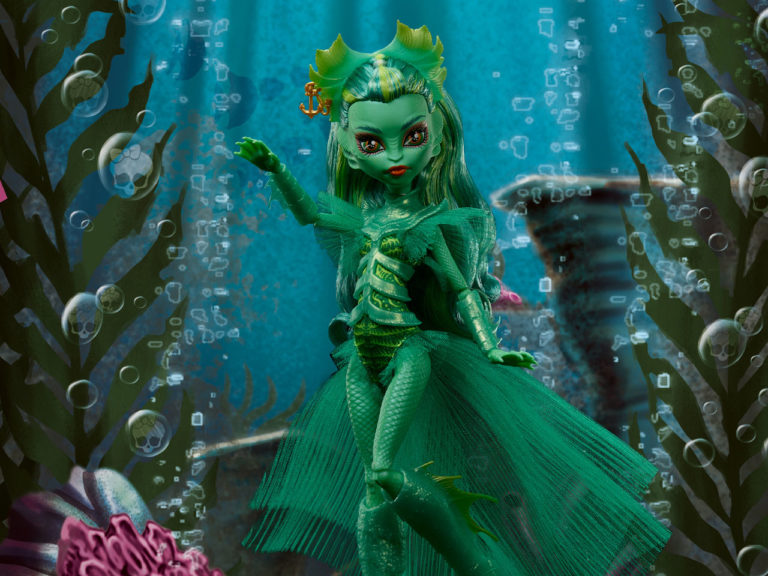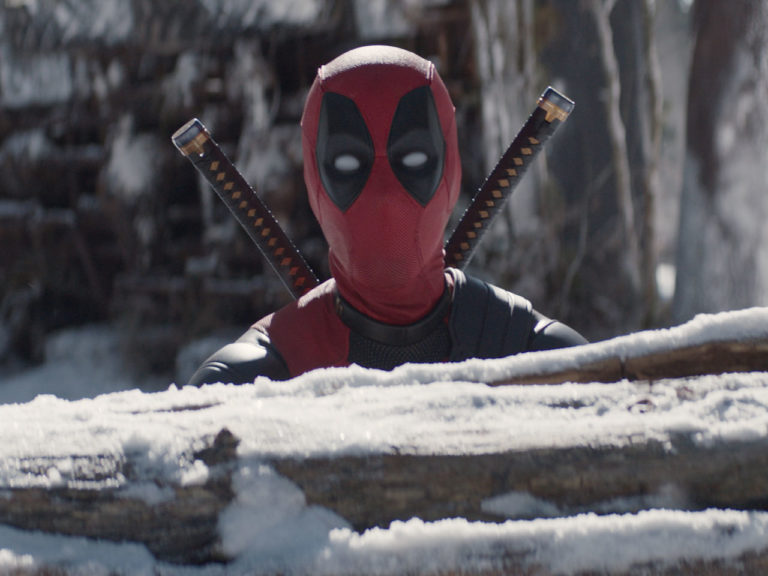
Young Justice continue on their Dark Crisis adjacent adventure in this issue written by Meghan Fitzmartin and drawn by Laura Braga. Luis Guerrero also continues as the colorist. Bart, Connor, and Tim now have to try and discover just where they are and how they can get back to their own world.
Well, last month I complained about having little to discuss. Apparently, I should be careful what I wish for. Let’s go through the positives first.
First, the art! It’s still good! Braga draws these characters perfectly. Their classic costumes also fit in with her style very well. As with the last issue there is a panel or two that aren’t quite up to par but they’re few and far enough between that it doesn’t bother me and I’m happy enough to chalk the cause up to a deadline crunch. If there’s one thing about her work that I can praise above all else it’s the character expressions. Check out this page:

This is someone who understands how to project emotions into character faces. Tim Drake’s face in the first two panels is my favorite. With the slight shadowing under the lip, the widening of the eyes and then the sequential turn of the head that is ever so minute, Tim’s bewilderment is crystal clear. While over the top stylization is great and has its place, this kind of work shows how much you can do with something so little.
Guerrero’s colors are also working well and I appreciate the effort put into giving each background some visual interest even if there are no pencils present. It really helps sell some of the sparser panels.
But now, unfortunately, onto the negatives.
This is a meanspirited comic. In the spoiler section last time, I made mention of the bizarre conflict elements that were introduced. However, as is my custom, I tried not to judge the book too harshly on its first issue. Generally, there isn’t enough information in a first issue to understand where the comic is heading. Issue two, as usual, reveals most of what you need to know. Now it turns out the conflict I noted before was just the tip of an enormous iceberg. All the characters are bitter. They dislike each other, they dislike their mentors, and the comic dislikes you!
The central idea that Dark Crisis: Young Justice is driving at is this: The team are terrible people. The 1990s and 2000s were terrible times. You should not have nostalgia for them. In fact, the script comes right out and says it. After experiencing what their lives supposedly used to be like Bart has this to say:

Whatever the previous issue was, this series has taken a massive heel turn. Issue #2 is purely social commentary. I’m not going to get into the politics of it and I don’t have a problem with comics being used for commentary. It’s an important part of art! What I take issue with is poorly written comics that are made for the sole purpose of giving the writer the opportunity to express their opinions. Social commentary alone, does not a story make. Good fiction incorporates commentary by showing the reader the problem and guiding them through an exploration of it. This comic fabricates a situation in which side characters can say offensive things so that our protagonists can tell us how wrong it is. In Urban Legends #10, Tim reveals his sexuality to Batman who tells him he just wants him to be happy. Here we see “2000s Batman” tell Tim his sexuality is a phase and claim that he is meant to be with Stephanie. This trip into the “past” was seemingly conceived just to create space for these interactions.

The biggest thing I take issue with here is how it takes aim at the readers who want Tim and Steph back together. I read this interaction as accusing these people of homophobia as well as implying that the comics they like are homophobic. Besides the fact that speaking down to your audience is not a great way to ingratiate yourself or your story to them, I think this implication is entirely in bad faith. Tim and Steph are one of the most beloved couples in comics and have been for 20 to 30 years. Their breakup happened off panel to make room for Tim’s new love interest (a character we haven’t seen in 15 years, from a run that is poorly regarded). I’m pretty sure most people would agree, there is nothing homophobic about loving that relationship and wanting it to return. Obviously, there is a group who only hate this change for those reasons but I’d like to think they are the minority.
Even if we ignore these problems, this story still falls into the horrible technique of recontextualizing the past to make a conflict. For example, we have Arrowette, who has a problem with the Young Justice boys. She even goes on a tirade about how toxic they and superheroes in general are (Superheroes are fascists, in case you didn’t know. A trope that has been wearisome for about a decade now).
Also, why is this comic so jaded? The boys are constantly ridiculing elements of their past, and brooding about how things used to be or currently are. It’s just a bit tiring.
This all presents terrible synergy across the event as well. Dark Crisis is a celebration of legacy. This miniseries is closer to a condemnation. If you’re into what this event is all about, I can only recommend skipping this book. It stands out in stark contrast.
I do have to make some comments on this panel as it reveals a lot of the problems with the story.

It’s entirely inorganic and it does not contribute to the story. Liz never shows up again. “She/her” and “they/them” are bolded. Cissie is also looking directly at the reader. Fitzmartin put this panel in to make a statement. Nothing more. She doesn’t have anything to say about the matter. If you want to read a comic with a strong focus on diversity and acceptance go find something that actually wants to tell you a story. Something with a meaningful exploration of its ideas. Saga is a great choice. This comic is shallow and mean.
Let’s be clear about one thing. All the ideas that are so clumsily bashed into this script with the subtlety of a sledgehammer are far from impossible sells. In the right hands these themes could be at the heart of a moving and thought provoking story, but you can’t force something that isn’t present into these characters lives and you have to do more than just parrot twitter when it comes to social commentary. If you’re going to write something about identity, intolerance, and nostalgia you must be writing at a high level or it is doing more harm than good. Everyone’s opinions are made up by their experiences, right? So, if their experiences with art that tackles an issue is negative, how might that effect their outlook on the issue itself? Will they be more hesitant to engage with it in the future? Social commentary should primarily be written for people who hold a differing view. It does no good for anyone who already agrees with everything you’re saying. If you want to change someone’s mind you have to do better than this.
Recommended if…
- As with many low quality comics, the art is still nice
- You’re determined to read all of Dark Crisis
- You have to make the decision for yourself (Totally understandable)
Overall
This title fails on multiple levels. It fails to write an engaging social commentary, to support the event that it is a part of, and to write an enjoyable story with these characters. Outside of the art, I cannot find any redeeming qualities here. A bad second issue is when I consider dropping a title. Unfortunately, a drop recommendation is exactly what this issue warrants.
Score: 2/10
Disclaimer: DC Comics provided an advance copy of this issue for review.


